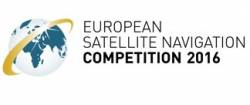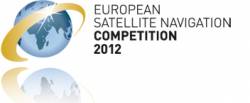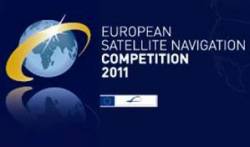
The European Satellite Navigation Competition (ESNC) 2016 — this year’s incarnation of the largest international competition for commercial GNSS applications — is once again looking for outstanding ideas and business models. Entries will be accepted from until June 30 at the ESNC website.
Major institutions and regional partners are set to award prizes worth a total of €1 million in more than 25 categories.
The European Satellite Navigation Competition (ESNC) 2016 — this year’s incarnation of the largest international competition for commercial GNSS applications — is once again looking for outstanding ideas and business models. Entries will be accepted from until June 30 at the ESNC website.
Major institutions and regional partners are set to award prizes worth a total of €1 million in more than 25 categories.
Established in 2004, the ESNC has evolved into a leading public innovation platform for turning promising ideas into market-ready products. The competition has already awarded prizes to more than 270 winners over the years, which represent just a fraction of the nearly 3,500 innovative concepts submitted by more than 10,000 total participants.
Each year, the competition unveils new trends and more than 500 business ideas. Through a network that includes the European Space Agency (ESA) Business Incubation Centers and other incubators across Europe, the ESNC plays a key role in the realization of these ideas by supporting the foundation of startups and creating high-tech jobs.
In 2015, an unmanned aerial vehicle application — POSEIDRON — was the overall winner of the ESNC. Developed by the Spanish startup Sincratech Aeronautics, the project developed a multicopter equipped with infrared cameras that uses the European positioning service EGNOS to provide a rescue service at sea.
Along with cash, the various ESNC prize categories primarily include technical, business-related, and legal support in transforming the winning business models into operating businesses. A jury of international experts from the realms of research and industry will also evaluate the winners of all the categories to select an overall winner, who will be revealed at the awards ceremony in October.
Those who enter the ESNC also stand to benefit from the opportunity to work closely with leading institutions and regional partners. The ESNC is geared towards individuals and teams from companies, research facilities, and universities around the world. In 2016, ESNC prizes will be sponsored by the following partner regions and institutions: ESA, the German Aerospace Center (DLR), the German Federal Ministry of Transport and Digital Infrastructure (BMVI), and the Horizon 2020 project BELS.
Prototypes can also be entered into the GNSS Living Lab Challenge. The University Challenge, meanwhile, is explicitly designed for students and university research assistants.
This year’s confirmed partner regions are: Asia, Austria, Baden-Württemberg, Bavaria, the Czech Republic, Flanders, France, Galicia, Hesse, Ireland, Israel, Lithuania, Madrid, the Netherlands, Norway, Poland, Romania, Sweden, Switzerland, the United Kingdom, and Valencia.
The ESNC and the companion Earth observation–related Copernicus Masters competition will hold an information event from 9:30 to 11:20 a.m. on June 2 as part of the European Space Solutions 2016 conference in The Hague, Netherlands.
AZO (Anwendungszentrum GmbH Oberpfaffenhofen) has been organizing the ESNC since 2004. By leveraging its extensive experience as a specialist in building and maintaining global innovation networks and organizing related competitions, AZO supports product innovations and the creation of new companies, primarily in the field of commercial aerospace applications. www.anwendungszentrum.de




